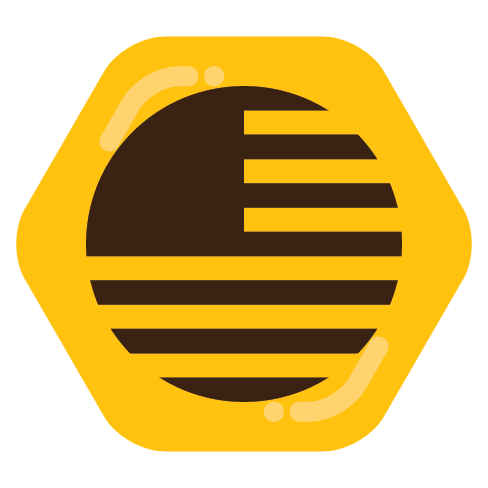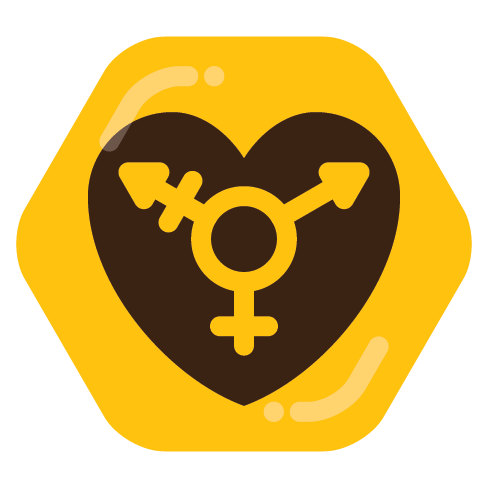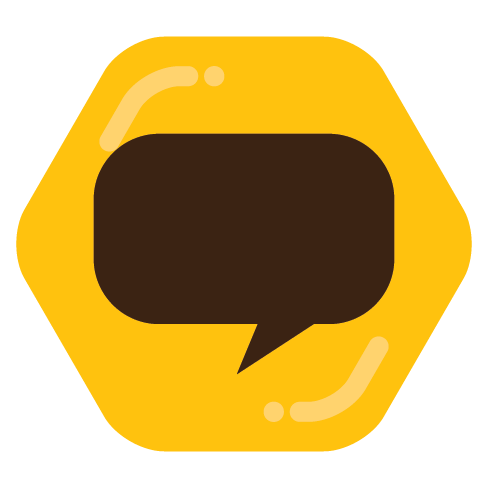As a huge fan of No Man’s Sky (maybe my favourite game), this is the game that really got my attention. It looks stunning.
J.P.
- 0 Posts
- 16 Comments
Many of these channels are super famous, so I’m probably not discovering those to anyone, but anyway. Here are some of my favorites, in alphabetical order:
-
AsapSCIENCE (he/him both of them) - Science education. They also have a podcast called Sidenote that supplements their channel, in which they have longer conversations around the topics of their videos or other topics, and you get to enjoy their personalities.
-
Carlos Maza (he/him) - Former Vox journalist, now turned independent. He makes amazing leftist video essays.
-
Contrapoints (she/her) - Video essays, often around online conversation topics and debates.
-
Faline San (any pronouns, but prefers he/him) - I just stumbled upon him a few days ago, and I have binged most videos on his channel. Hilarious storytelling of mostly mundane things. Great for lighthearted content.
-
Freya Holmér (she/her) - Game developement, often complicated stuff that goes way over my head, but her “Math for Game Devs” videos are a must watch for any aspiring game developer. She breaks down really complicated stuff and makes it incredibly easy to understand and apply into your games. She also streams on twitch sometimes.
-
JaidenAnimations (she/her) - Comedy animated videos, mostly around gaming or personal life storytelling. Also streams on twitch.
-
JustWrite (he/him) - Video essays about movies, and sometimes other media.
-
münecat (she/her) - More video-essays around leftist topics. Also makes music on twitch.
-
Shonalika (they/them) - Can you guess it? Yes! More video-essays! (and some music).
-

 10·9 months ago
10·9 months agoYou are just repeating the same thing I said: that other things can cause the same injuries, and assuming that the triad of symptoms mean abuse is the part that is junk science. Not the existence of shaken baby syndrome, which is real.
But that’s not what the article says, over and over again. I really thought this was unnecessary, but anyway, here we go. Here are the quotes that I find problematic because of their wording:
Robert Roberson was sentenced in 2003 for killing toddler on basis of shaken baby syndrome, now ruled as ‘scientifically unreliable’
The “shaken baby syndrome” itself is not “scientifically unreliable”. Using it as proof of abuse is. But the shaken baby syndrome is real and scientifically proven to happen. This wording seems to imply the former, not the later.
[…] having been sent to death row on the basis of “shaken baby syndrome”, a child abuse theory that has been widely debunked as junk science, […]
The “shaken baby syndrome” has not been “debunked as junk science”. It’s only been debunked as proof of abuse. But, again, child abuse does indeed cause “shaken baby syndrome”, that’s not a debunked theory. Once again, the wording seems to imply the former, not the later.
Leading scientists have questioned the reliability of shaken baby syndrome, both as a medical diagnosis and as a forensic tool in criminal prosecutions […]
It’s been questioned as a forensic tool, not as a medical diagnosis. As much as I look for proof that says otherwise, I can’t find anything. It’s a real, unrefuted medical diagnosis. I’ve read the links they quote, and again, they focus on using it as forensic evidence of abuse. Nothing about it not being a real medical diagnosis. This wording doesn’t just imply, it’s straight up saying that it’s not a real or valid medical diagnosis. which is not true.
Last month, an appeals court in New Jersey ruled that the theory was “junk science” and “scientifically unreliable”.
Yeah, the quote mentioned by snooggums, again, implies that the whole “shaken baby syndrome” is junk science. But I actually read that document before my other post, and you don’t have to read too much to find out that the meaning is exactly the one I mentioned. From page 3, literally the first sentence of the text:
In these appeals, we consider the scientific reliability of expert testimony that shaking alone can cause the injuries associated with shaken baby syndrome [emphasis mine]
So once again, this article is giving the idea that the whole diagnosis is a debunked myth, but that’s not what the court document says. It just says that the symptoms are an unreliable proof of abuse, since other causes can create the same symptoms.
I don’t know if someone (maybe the author, maybe the editor) didn’t really understand what has been debunked exactly, or whether they are bad at writing, but the way it’s worded spreads dangerous misinformation about health issues in children. Over and over again, it dismisses the entire “shaken baby syndrome” as junk science, instead of specifying that “its use as evidence of abuse” is what has been debunked.

 40·9 months ago
40·9 months agoI tried looking into why would they call the “shaken baby syndrome” “junk science”, since it’s a very real thing accepted by all the reliable sources I could google. I had to read into their linked sources to understand what part exactly is “junk”.
So just to clarify, it’s not that the “shaken baby syndrome” isn’t real. It is. The “junk” is the part in which scientists identified three symptoms (“bleeding between the tissue layers covering the brain, swelling on the brain, and bleeding at the back of the eyes”) that happen from shaken baby syndrome, and some forensic practitioners read that as a bi-directionally exclusive relationship: if the three symptoms occur, it must be shaken baby syndrome. There isn’t enough evidence to support that other issues couldn’t cause the same symptoms, and using that triad as proof of abuse is controversial.
But shaken baby syndrome is very real, and it causes those three symptoms. The wording of this article (including the subheading) repeatedly seems to imply otherwise, which spreads dangerous misinformation that reads as “shaken baby syndrome is a myth” and that “physically abusing children doesn’t cause shaken baby syndrome”. That is “junk journalism”.
I’m not sure about why that’s the standard, but it may have to do with the fact that in fighting games you don’t want to be jumping all the time, it’s something that you have to do carefully, while crouching is something you do constantly, and most motion inputs involve the “down” direction (like quarter circles or the shoryuken input), and having left-down-right lined up makes it pretty easy to do those motions. Think about pressing your Q-W-E keys in quick succesion. You can probably do that without much practice. That’s a half-circle-forward motion. If you have “down” in your thumb, a half-circle would be like pressing “Q-Spacebar-E” in quick succesion, which is more difficult.
Maybe it’s also because people often use the space bar in keyboards to jump in many games, and that’s what they were used to.
In any case, once you get used to this layout, it’s very comfortable.
Usually, thumb is for jumping, but some people prefer the other way.
They both look awesome. I asked because I love the size and shape too. Great work!
They are arcade sticks that, instead of using a joystick with 4-directional switches, use 4 buttons for the directions. They are often called “Hitbox” because that’s the brand that popularized them. Some people also call them “all-button controller” or “stickless controller”. The advantages are ergonomics (many people have developed carpal tunnel syndrome from traditional joysticks) and economy of motion (it’s easier to press 4 buttons with 4 fingers than move the entire wrist/forearm to move a joystick).
It’s pretty much like using a keyboard for fighting games, but you only have the buttons that you actually use, the keys are large buttons, and there are no issues with pressing many simultaneous buttons (many keyboards have problems with that). People also often use PCBs that are compatible with PS5 or other consoles, and also SOCD cleaners (which is a piece that helps configure which inputs should be sent if you press “Simultaneous Opposite Cardinal Directions”).
They’ve been gaining more and more popularity over the last few years. If you are good at typing, you may be more comfortable playing fighting games with this than with a traditional joystick or even a gamepad.
I love the black&white color scheme!
What did you use for the case?

 1·9 months ago
1·9 months agoThat’s definitely my issue, there is so much to learn that I’m trying to learn too much at once. I’ll try focusing on one thing at a time. Thanks for the tips!

 1·9 months ago
1·9 months agoThanks for the encouragement! I’ll keep trying, I just feel like there is a very steep curve until I reach the point of not having to use 110% of my brain power. As things become muscle memory, they’re becoming easier and more enjoyable.

 29·9 months ago
29·9 months agoI’m no economist, but I’m pretty sure what we have now is 100% capitalism. It’s exactly how many people predicted capitalism would look like if given enough time.
Many years ago, a libertarian classmate asked me how I think the world would look like if corporations were unregulated. I told him (again, without being an economist) that corporations would probably become the new countries, that they would own everything like monarchs used to, as a few corporations monopolized everything. (I still find his answer funny: “And wouldn’t that be better?”. I just told him “Of course not!” thinking “WTF?”).
My point is that this idea that the current system is “worse than capitalism” and “capitalism is dead”, stems from some kind of idealization of what capitalism is supposed to be like, and not from the realities that many people have been pointing out throughout the XX and XXI centuries about how capitalism works and what its end-goal is. This is exactly what capitalism looks like. “Technofeudalism” seems like yet another way of not addressing the issue, like when people say “the problem is not capitalism! it’s crony capitalism!”. As if there is some form of capitalism that has ever put people over money.
Also:
It might look like a market, but Varoufakis says it’s anything but. Jeff (Bezos, the owner of Amazon) doesn’t produce capital, he argues. He charges rent. Which isn’t capitalism, it’s feudalism.
Again, I’m no economist, so someone correct me if I’m wrong, but I’m pretty sure the capitalists (i.e. the owners of the means of production) have never produced capital. The workers do. The capitalist have always taken the profits of their worker’s labour in exchange for using those means of production. You could call that “charging rent”.
There is nothing new about what’s going on right now, except on the superficial level, the specific tech that’s being used to achieve the monopolistic goals of any corporation. Given enough time, the inevitable concentration of power that capitalism leads to, will always look like feudalism.

 2·9 months ago
2·9 months agoApex Legends has become my go-to comfort game (non-ranked, and without any voice or written chat, everyone muted by default).
I’m also trying to get into Street Fighter 6, but just watching tutorials melts my brain. Everything is an overwhelming info dump.

 2·9 months ago
2·9 months agoI really enjoyed this article. It’s very validating to see that other people see the same issues as I do with pseudoscience, especially when spouted by reputable scientists.
The field of psychology, in particular, still feels riddled with pseudoscience everywhere you look (probably due to being so young compared to other fields), which has already severely undermined its reputation in the eyes of many people I’ve talked to.
I didn’t know about IIT specifically, but I’ve definitely heard way too much quackery around the concept of consciousness. To me, the first issue that I find around this topic is the lack of an operational definition. There seems to be no agreement about what are we looking for exactly. If we are going to look for this human-made construct called consciousness, first we need a clear definition that allows us to measure it, and separate what is conciousness from what isn’t. Once we have that definition, we can search for consciousness, and after that, then we can start making theories about how it emerges.
Hello everyone! I’m JP, still undecided on pronouns (any for now). I tend to be a lurker even IRL (I’m the quiet person who just likes to be there), but I’d like to start participating more in the spaces I enjoy and maybe find some sense of community.
Lately I’ve grown tired of my hobbies, and I’ve been looking for new ones. Growing up I read a lot, I used to draw and write, I played a lot of videogames, and I practiced martial arts (Karate and Judo). Later in my teens I learned to play guitar and bass, some friends got me into anime and manga (although I don’t watch or read many anymore), and like most people, I’ve enjoyed many movies and TV shows.
Recently I learned how to code (just the basics in Java, I still don’t know how to build a full web/mobile app), I started learning gamedev in Godot (I did the basic tutorials for 2D and 3D games), and now I’m trying to learn 3D modeling in Blender, but I’m pretty slow and inconsistent. I also spend a lot of time online learning about social issues, probably to the detriment of my mental health.
Other hobbies I’d like to try in the future include cooking (I suck at it, but I’d like to get good); sewing, knitting and crocheting; painting, and I’d like to get into reading and writing again at some point. I’d also like to learn how to make music, since I only know how to learn songs, but not how to write, record or produce one. My favourite music falls into the “alt-rock/indie-rock” umbrella, and lately I’ve also been discovering post-rock, which I love.
Nice to meet you all! So far, Beehaw seems like a really nice place to be(e).


Gamergate was one of the first online instances that showed how easy it is to spread lies and misinformation through social media in order to manufacture outrage and weaponize it against specific targets.
The same exact tactics have been used by the far-right since. Gamergate felt like a testing chamber, before the full blown nazi propaganda plan that’s getting far-right politicians elected in many places. I live in one of such places, and the online tactics used by literal nazis against progressive politicians are 1-to-1 the same used in gamergate.
Those issues with social media have never been dealt with. If anything, social media has become more mainstream since, and now these tactics of lying and manufacturing outrage have become more powerful.
Traditional media seemed to have some semblance of accountability (although not really), but in social media, anyone makes up shit, people will take their word for it, if they like what they hear (or aligns with their beliefs), and it doesn’t matter if it’s debunked, because no one listens to that part.
The only solution is, and has always been, a zero tolerance policy against any kind of hateful or bigoted behaviour, by the people who control these online spaces. No one expects 4chan to moderate their content at this point, but when someone makes a new online space for conversations, those same people shouldn’t be welcomed, or they’ll shit all over the floor, turn it into another gross place, and you’ll have to start over.
These new complaints about “wokeness” in games, that happen with every game announcement, aren’t even dog-whistles at this point. They’ve been straight up howling for a while. The follow-up attacks, threats, lies, the dismissal that “none of this happens, it’s all made up”, and the support of fellow misogynists (like the companies with a history of sexism mentioned in the article), are all just part of the program.
And of course, you can see them in some of the comments in this very thread.